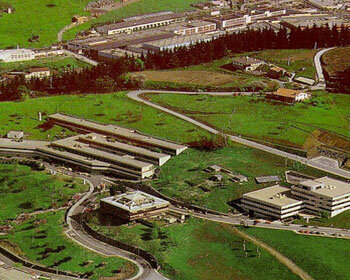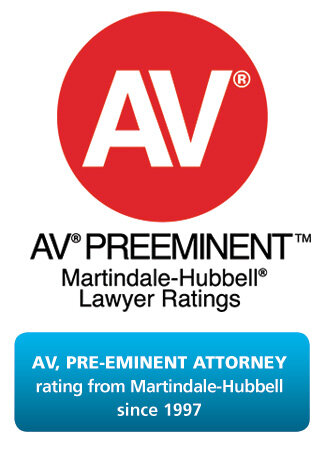How a Co-op ESOP Hybrid Works – If you missed this Feb. 21 webinar, you can now watch the recording here:https://vimeo.com/319063049You can also get the session materials, slides, and more here.Democratic ESOPs or ESOPs with co-op features has been a specialty of Deb Olson’s law practice for 38 years. Once Again Nut Butter Collective (OANB) is the featured example company in this webinar. OANB’s CEO, Bob Gelser, a worker board member, Scott Owens, and Deb, who is board chair of OANB will present on the two and ½ years of work that has led to the OANB participatory decision making system, and the history leading to it. Deb spoke about legal mechanisms and issues. Bob and Scott talked about the practical issues of making a participatory workplace of 80 people function efficiently. Chris Cooper of the Ohio Employee Ownership Center (OEOC) moderated.This event was cosponsored by the Groban Olson Law Firm, the Center for Community Based Enterprise (C2BE), the Ohio Employee Ownership Center at Kent State University (with support from the USDA's Rural Cooperative Development Program); Horizon Trust & Investment Management; and Once Again Nut Butter Collective, Inc.
Groban Olson law firm helps nation’s first “perpetually-employee-owned” life sciences company takes shape in Ann Arbor
Arbor Assays announced that it has become the first US life sciences company to be 100% perpetually employee owned, as of January 1, 2017.Wishing to pass the company to its 11 employees, the owners of Arbor Assays worked with the Law Firm of Deborah Groban Olson, PLLC and the Center for Community Based Enterprise (C2BE) in Detroit to develop the financial and legal framework for the sale to employees, using a model that’s fairly common in the UK, but new to the US.The former owners continue to be fully involved in the business which will now be managed as an employee-owned business.Dr. Russell Hart, said: "We want Arbor Assays to remain an independent and successful business and were impressed by how the perpetual trust model can achieve this. Shares are held on trust permanently for all employees, rather than allocated among staff as happens with ESOPs. This means there are no repurchase obligations that can destabilize a company's ownership. Profits that might otherwise be distributed to investors are available to pay out to staff as bonuses. We hope our adoption of this business model will encourage others in the US to do likewise and for the US tax authorities to consider tax breaks to encourage its take-up, as has happened in the UK. We appreciate C2BE’s help in providing a range of talented professionals with strong employee ownership experience to guide us through this transaction.”Attorney Deborah Groban Olson, Executive Director of the Center for Community Based Enterprise (C2BE) said, “We worked with Arbor Assays’ founders and employees to explore various means for accomplishing employee ownership that would include robust employee participation in the corporate governance, avoid unnecessary regulation and costs, and keep the business independent and rooted in Ann Arbor. After reviewing a number of options, including Employee Stock Ownership Plan (ESOP), a worker cooperative and the perpetual trust methods, Arbor Assays choose the perpetual trust as the most efficient and effective option. C2BE assisted the employees and the sellers to arrive at a mutually agreed fair price, and will continue to work with Arbor Assays as it builds its employee ownership culture and systems.The Arbor Assays trust establishes proof of concept of a new method of employee ownership that other American companies can adopt. The trust model of employee ownership is long established in the UK. The UK's John Lewis Partnership, with its successful supermarkets and department stores, employs almost 89,000 permanent staff and is 100% employee trust owned. Its trust ownership started in 1929. There are many other examples that demonstrate this is a tried and tested way of owning and running a business”.C2BE connects people and companies interested in developing employee ownership with technical advisors and education. The C2BE Arbor Assays project team, including David Drews and the Law Firm of Deborah Groban Olson, PLLC, represented the employee owners in the transaction, the UK firm of Fieldfisher created the UK trust and the sellers were represented by corporate counsel. David Drews of Justus Equity, a C2BE advisor, helped with financial modeling and the valuation of the company. Mr. Drews recently agreed to serve on the Arbor Assays board of directors.Bobbi O’Hara, R&D Project Manager at Arbor Assays, led the employee group through the transaction. Initially elected as the Employee Representative, she is now one of the Company Trustees. Bobbi O’Hara said: “Making the decision to transition from private ownership to perpetual trust speaks volumes about the faith in our collective competencies and the importance in taking care of each other, not just as coworkers, but as a community with a common goal. As employees, we are excited to see how we'll shape our shared responsibility and direct this opportunity to have an impact for the benefit of us all."Many thanks,Deborah Groban OlsonExecutive DirectorCenter for Community Based Enterprise (C2BE)231 E. Grand Blvd.Detroit, MI 48207(313) 331-7821 (office)(313) 300-6517 (cell)www.c2be.orgdgolson@c2be.orgdgo@esoplaw.comAbout Arbor Assays, Inc.Founded in 2007, Arbor Assays, of Ann Arbor, Michigan, serves customers globally, designing, developing and manufacturing detection and immunoassay products for important research biomolecules.734-677-1774 | Info@ArborAssays.com | www.ArborAssays.com
Cooperative Development for Communities and Unions - presentation at New Work New Culture Conference 10-19-14 in Detroit
Deb Olson facilitated a Worker Co-op Development workshop at the New Work New Culture conference in Detroit on 10-19-14. Deb provided an overview on all types of co-ops and worker ownership, and an update on the projects of the Center for Community Based Enterprise in the power point "Strategies for Community Wealth Building through Cooperation" as background for a focus on union worker co-ops. The other panelists were Kristen Barker and Phil Amadon, who spoke about the Cincinnati Union Co-op Initiative, and Chris Michalakis from UFCW Local 876 who explained the Local’s participation in Community Growth Partners, a non—profit which is developing a worker owned grocery store chain in metro Detroit through conversion of existing independent groceries. Their goal is creation of a unionized, worker owned grocery chain in Detroit providing the best locally-sourced food.
Mondragon Cooperative Corporation (MCC)
The Mondragon Cooperative Corporation (MCC) began 50 years ago when the Basques were on the losing side of the Spanish Civil War. Their capital city, Guernika, had been leveled by Franco and their language was banned. Their children were leaving. They had lived in the mountains around Mondragon for 1000 years. A Basque priest, who had studied the distributist teachings of the Catholic Church, began to teach classes on self-management of businesses and worked with the community to create an industrial school. The first five graduates of the industrial school, purchased some used equipment and started a stove company, which is now, Fagor, the 3rd largest producer of appliances in Europe.  Fagor started 14 years after the priest began his classes on self-management. Shortly thereafter they created a bank to help finance and to provide technical assistance to the various cooperative businesses in their group. The organizing drive to start their community bank was “savings or suitcases”. Fifty years later they have 85,000 people working in 120 companies with €38 billion of assets and annual revenue of €13 billion. Their industrial school is now an engineering and business university. Approximately 20,000 of those working in the co-ops are engineers. The co-ops jointly own second level co-ops that provide insurance, research and development and other services to the co-op companies that own them.
Fagor started 14 years after the priest began his classes on self-management. Shortly thereafter they created a bank to help finance and to provide technical assistance to the various cooperative businesses in their group. The organizing drive to start their community bank was “savings or suitcases”. Fifty years later they have 85,000 people working in 120 companies with €38 billion of assets and annual revenue of €13 billion. Their industrial school is now an engineering and business university. Approximately 20,000 of those working in the co-ops are engineers. The co-ops jointly own second level co-ops that provide insurance, research and development and other services to the co-op companies that own them.
Mondragon’s growth and development was strengthened by its comprehensive approach:
- 1941 Basque region of Spain - after capital bombed flat - Priest arrives teaching about independence through mutual self-reliance, self-managed businesses and continuous education
- 1943 created a technical school for area youth to learn work skills
- 1956 first 5 graduates of the school borrowed money from everyone in town to open the first business – making stoves. They purchased an existing plant and equipment from a nearby town.
- 1959 created, Caja Laboral, co-op development bank with savings from co-ops and community members
- 1959 Bank created an entrepreneurial division that provided R&D for all group businesses & hands-on lending
- 1974 created Ikerlan – Technology R&D center
- 1991 group of cooperatives incorporate as Mondragon Corporacion Cooperativa (MCC)



